Visit to the last clean creek in Manaus moves students
20 de March de 2025
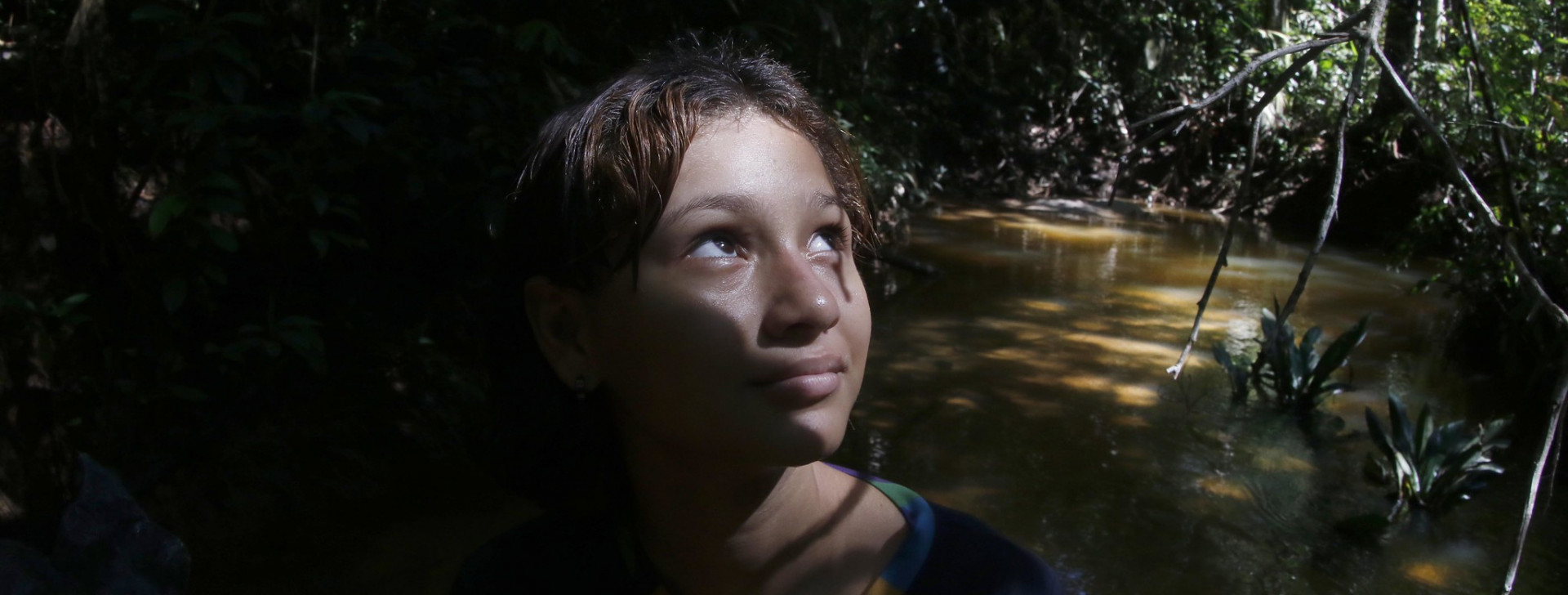
By Letícia Misna – From Cenarium
MANAUS (AM) – Close to World Water Day, celebrated on 22 March, students from the public education system in Manaus visited Água Branca, the last clean igarapé (creek) in Manaus, located in the Tarumã neighbourhood, in the West Zone. For most of them, it was the first time they had contact with natural water that has not yet become a trash dump.
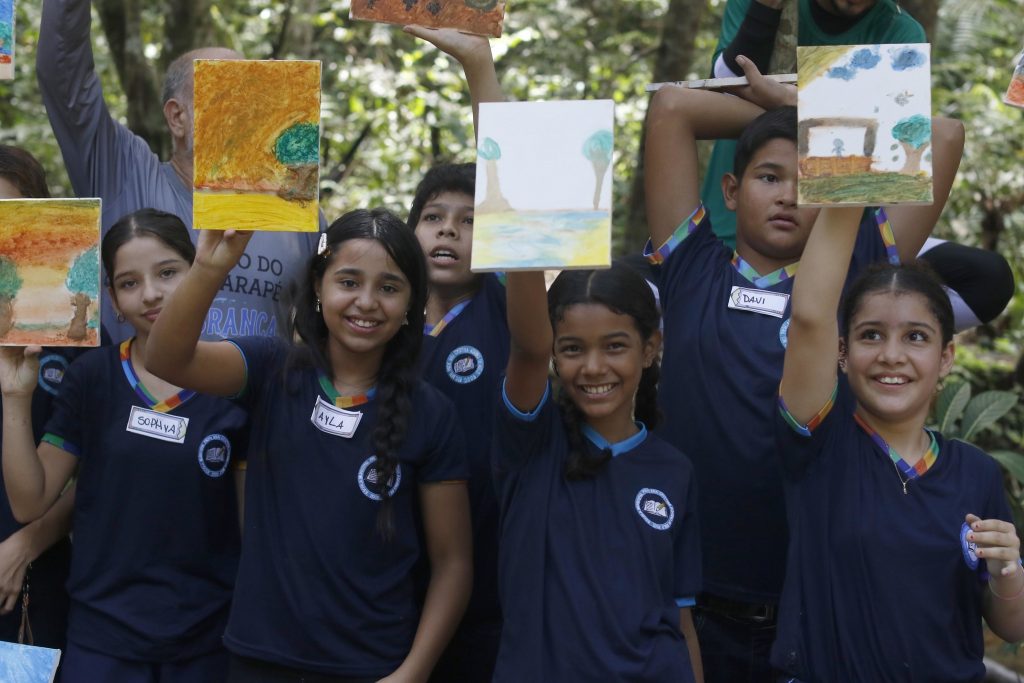
Part of Água Branca flows through a property owned by journalist and activist Jó Fernandes Farah. President of the Non-Governmental Organization (NGO) Mata Viva, he and his companions have been taking care of the spring and fighting for its preservation for over 20 years. It is through Mata Viva projects that children can participate in excursions like this and have contact with clean water.
One of these children was Thayla Pereira, 11 years old. A 6th-grade student, Thayla highlighted that the experience was good because she had never seen an igarapé “like this.” “The ones I saw always had trash, pieces of glass, sewage… And this one is cleaner, more preserved, and it doesn’t have the bad smell the others have,” said Thayla.
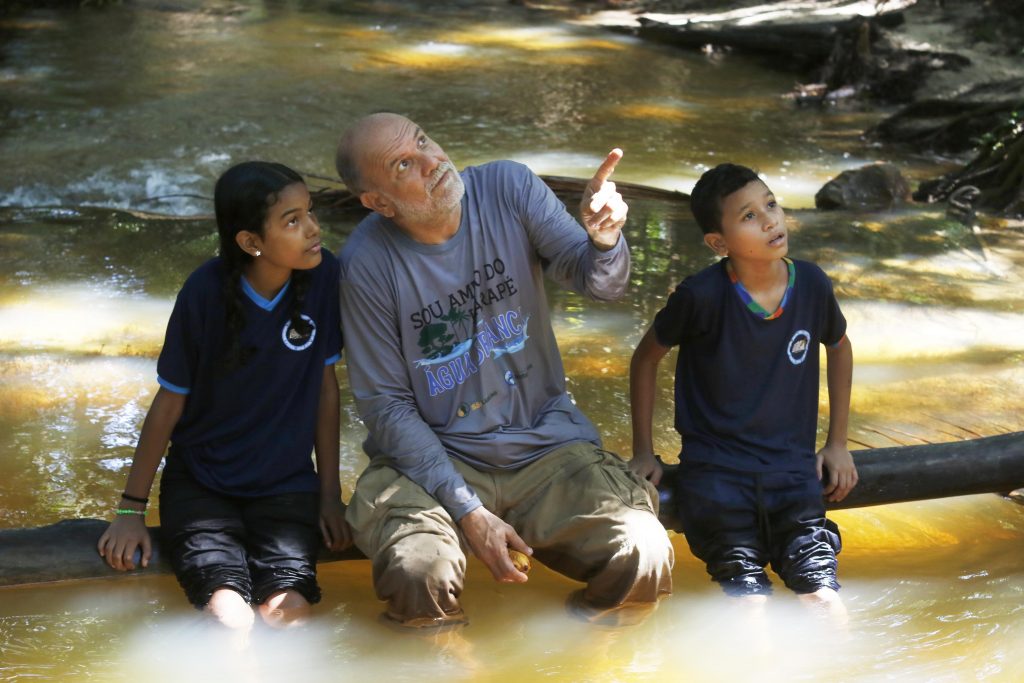
In an interview with CENARIUM, the student also mentioned global warming and how it destroys life on Earth, in addition to advising on the preservation of the watercourse. “Always keep the trash until you find somewhere to throw it away because it harms lives, fish, and even us. It’s not good to always pollute because it harms people and animals a lot,” she stressed.
Threat and Salvation
For biologist Arley Figueiredo, who accompanied the children on the excursion, the salvation of the waters lies in the awareness of the new generations. “Children are full of energy, and they are able to absorb the knowledge we have to pass on to them. It is very important that they have this environmental awareness and recognise the igarapé that is still clean in Manaus,” he stated.
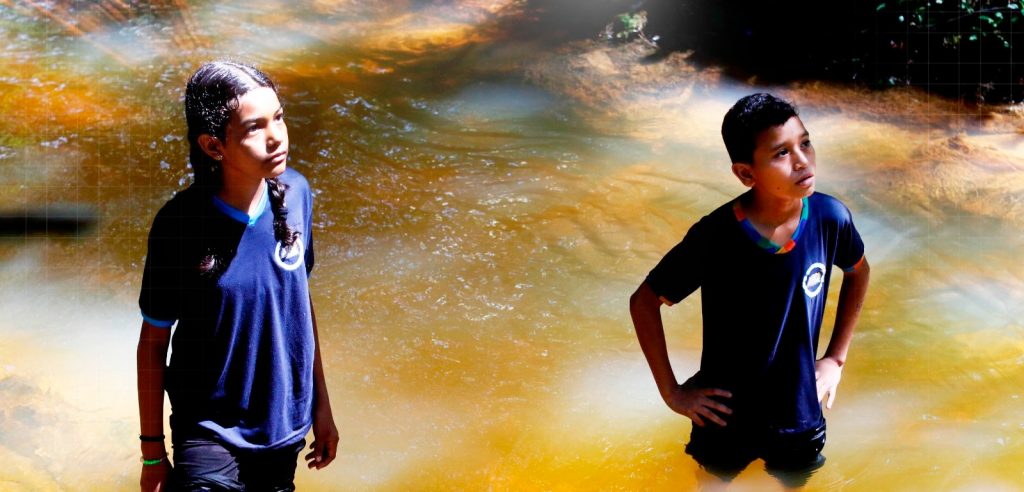
However, the biologist pointed out that the spring faces a serious threat: large constructions being raised in the Tarumã neighbourhood, around Água Branca.
“Real estate speculation has increased property values, and now everything is being envisioned for Tarumã: mansions, large condominiums, and houses built around Água Branca. And for this to happen, the riparian forest, the vegetation fragment, is removed; not to mention the sewage treatment of these condominiums, which we don’t know what’s being done with. We are talking about money, and money, man, the more you have, the more power you gain,” he emphasised.
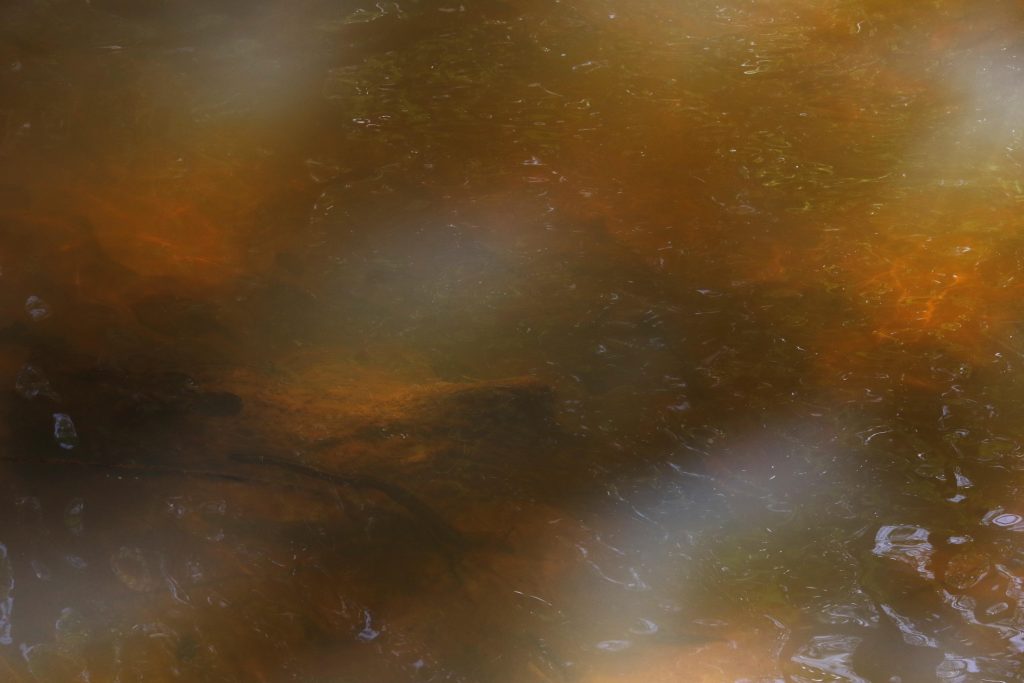
For him, one solution to keep the spring safe would be to demand that construction companies reforest the deforested areas and that the sewage stations of residential areas do not discharge waste into the waters.
“This igarapé is life. All the water we consume is extracted from the Rio Negro, and this igarapé is one of the springs of the Rio Negro; it [Água Branca] must be preserved; and in addition to serving as a water source, it also serves as a breeding ground for fish species such as jatuarana, pacu, aracu, and a diversity of fish fauna,” he concluded.

